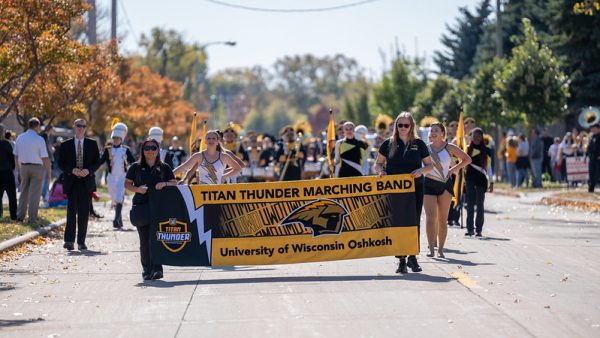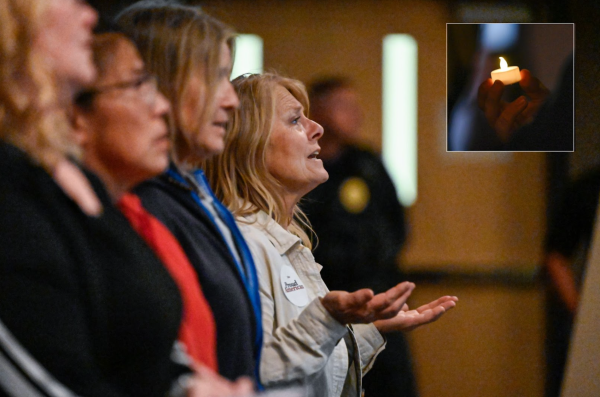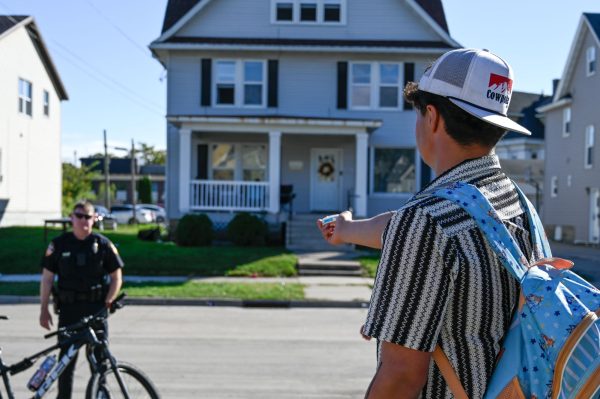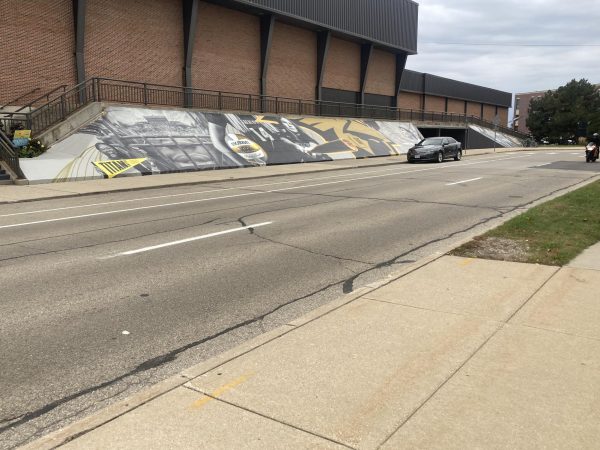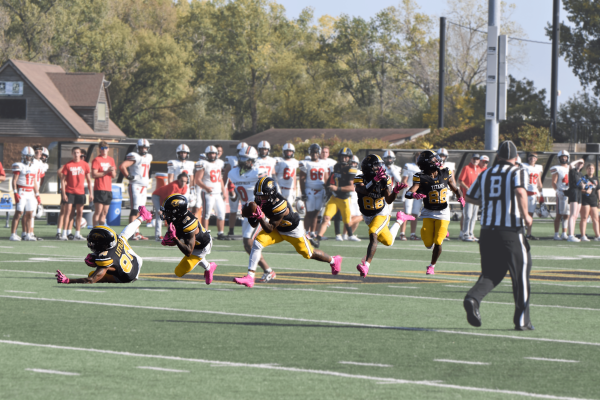UWO earns a ‘red light’ rating
The Foundation for Individual Rights in Education recently rated the University of Wisconsin Oshkosh with FIRE’s worst “red light” rating for severely restricting students’ speech rights on campus.
FIRE was founded in 1999 by University of Pennsylvania professor Alan Charles Kors and Boston civil liberties attorney Harvey Silverglate. According to FIRE’s website, their mission is “to defend and sustain the individual rights of students and faculty members at America’s colleges and universities.”
FIRE rates 461 of America’s largest universities as “red light,” “yellow light” or “green light” based on how much protected speech their policies restrict. A “red light” policy is given when a policy is considered to be a clear and substantial restriction on protected speech.
The analysis FIRE conducted reported that UWO earned its rating for several reasons. One example provided in the report stated, “All members of the University have a responsibility to promote and a right to expect an environment that is free of harassment and free of insulting and demeaning comments and epithets based on race, ethnicity, gender, religion, sexual orientation, age, disability, military status, socioeconomic status, family status, or political views; and consistent enforcement of federal, state, and university protections against discriminatory treatment yet is free from any official speech codes.”
Senior program officer at FIRE Laura Beltz said the organization also informed UWO of its “red light” rating through letters that were part of a campaign targeting “red light” schools in both 2015 and 2016.
“FIRE had discussions with administrators about recommended policies; we hope the administration will eventually revise these speech codes to better meet First Amendment standards,” Beltz said.
FIRE also recently published an article on their website regarding a conflict at UWO between a former Advance-Titan news editor and a professor.
The conflict resulted when a professor was mysteriously removed from one of his classes in spring 2017 and Alex Nemec, who graduated in December 2017, requested documents pertaining to the situation.
On Aug. 15, Nemec received the records about a previous incident from a UWO record custodian who mistakenly provided the documents without redactions. After learning of her error, the record custodian instructed Nemec to destroy all copies of the unredacted records that were sent to him. Nemec eventually destroyed the documents.
According to documents obtained by the Advance-Titan, Nemec could face a restraining order and permanent injunction prohibiting him from “publicizing, printing or sharing, in any manner, whether verbally, in writing or otherwise, the contents of those portions of the records subject to redaction.” The pending restraining order against Nemec is set for an oral decision hearing on Nov. 21.
In the article, FIRE stated, “…the lawyer for the professor has also asked the court to impose a similar prior restraint on Nemec. That motion has not been withdrawn, and if granted it would clearly abridge Nemec’s First Amendment rights.”
However, Beltz said the article did not play a part in the decision to give UWO a “red light” rating. According to Beltz, FIRE only relies on a university’s written policy when giving spotlight ratings.
Director of FIRE’s Individual Rights Defense Program and author of the article aforementioned, Adam Steinbaugh said he reported on the conflict because he feels that it is important to look out for the First Amendment rights of student journalists, even when they’ve graduated.
“Government officials can’t tell you something and then, once they’ve realized they’ve made a mistake, demand that you not tell anyone,” Steinbaugh said. “The government sought a specific court order that would make it unlawful, perhaps even criminal, for a journalist to discuss what’s in government records.”
Beltz said UWO earned its rating based on the University’s speech code that infringes on free speech.
“When you have vague terms that don’t have legal definitions like ‘insulting’ or ‘demeaning’ comments, that’s really subjective,” she said. “It depends on the listener’s perception, and it doesn’t have an objective element to it, so really whatever kind of speech the school thinks is insulting could be punished under this policy.”
Beltz explained which policies FIRE examines when researching a university.
“We take a look at all the policies at the school that regulate expression on campus, so that’s things like demonstrations policies, but it could also be something like harassment policies that are written overbreadth that could include protective speech,” Beltz said. “So we look at all those policies and we rate based on First Amendment standards the extent to which it restricts protected expression,”
Beltz also said FIRE works with universities to revise policies to better meet First Amendment standards.
“When schools learn they have a “red light” rating, we just invite those schools to work with us on the policies so they can reach the things they’re going for,” Beltz said. “Obviously UWO is trying to protect students from harassment so we would be happy to work with UWO to revise this policy so it bans harassment according to the legal standard set forth by the Supreme Court.”
UWO student Ireen Mbekeani said she encountered a problem on campus last year that was not addressed properly. According to Mbekeani, the problem could have been resolved if there was a better policy in place regarding harassment.
“Last year I was in student government, and they talked about at few issues they were having in the dorm, like racial slurs being said and being written on people’s dorms,” Mbekeani said. “I even brought it up to the NSAC government and said, ‘Hey, we should raise awareness about this and let people know this is a safe place they can come,’ but nothing ever happened, there was never any initiative to do anything.”
UWO Chancellor Andrew Leavitt and Director of Communications Mandy Potts declined to comment.



